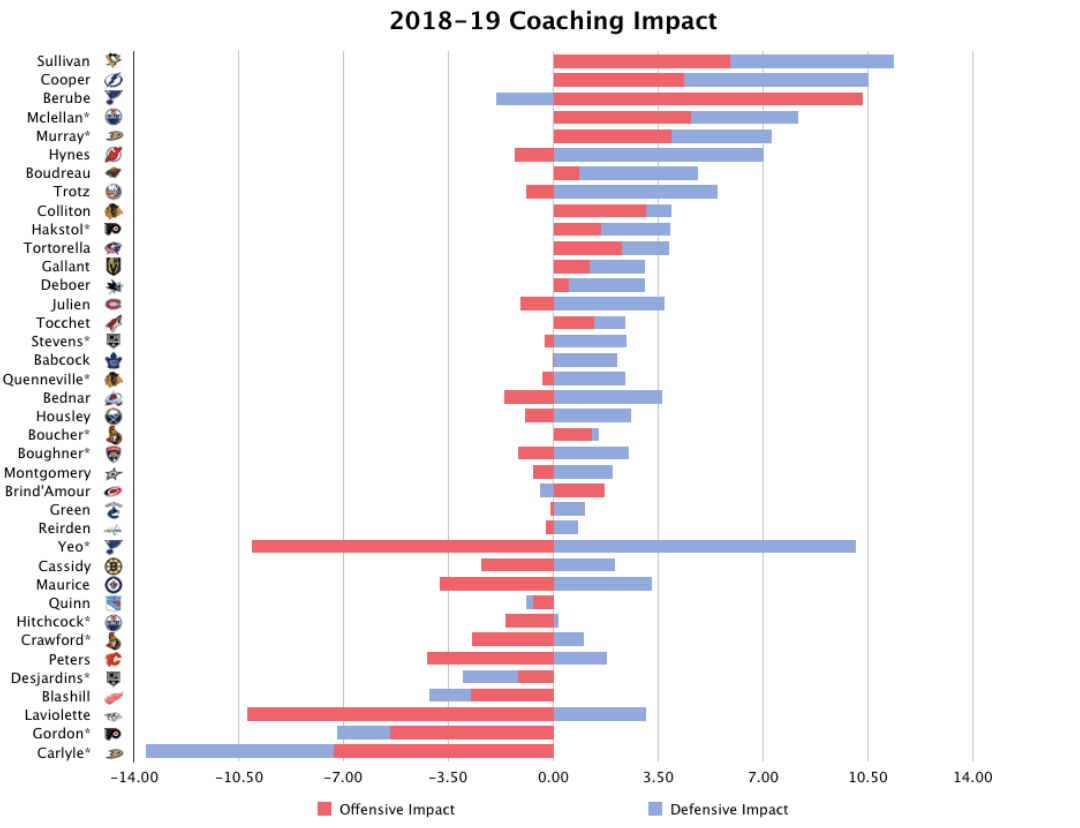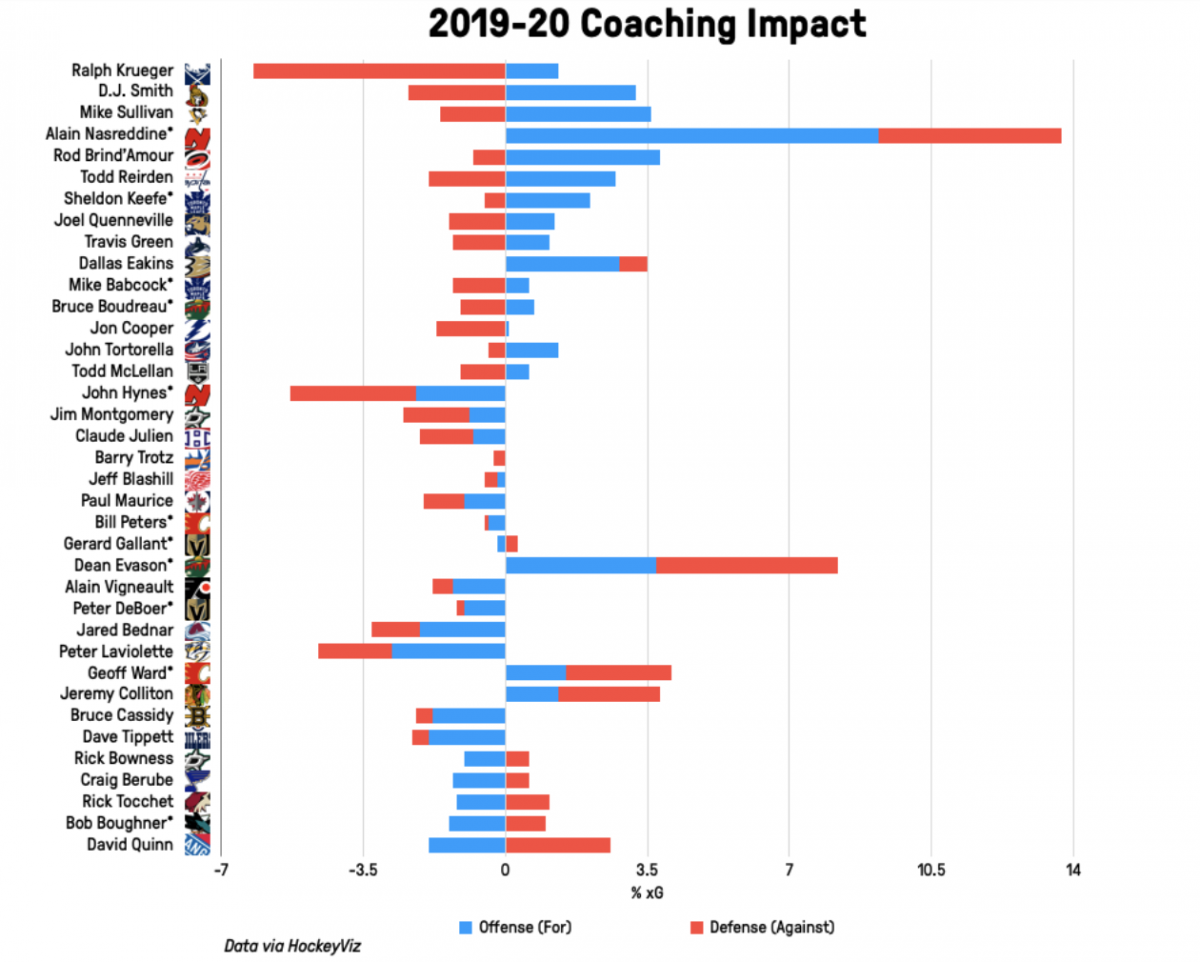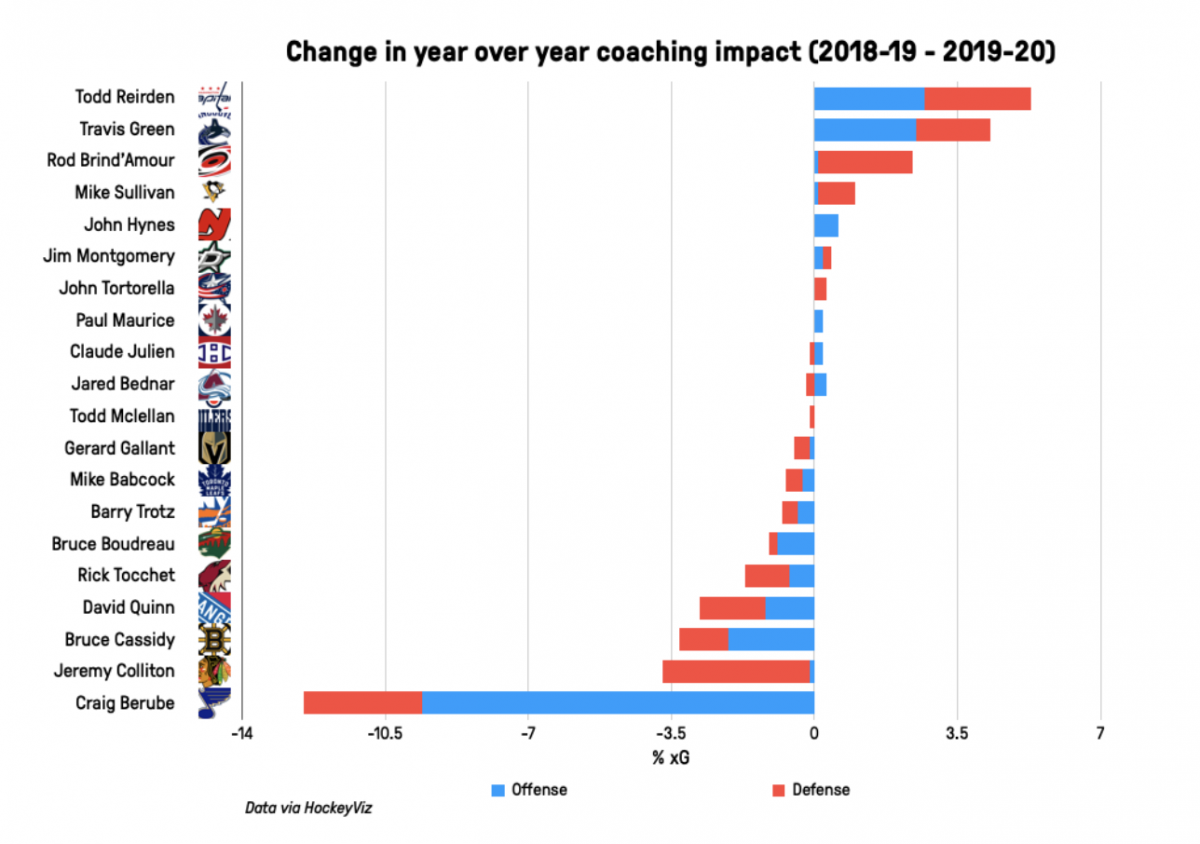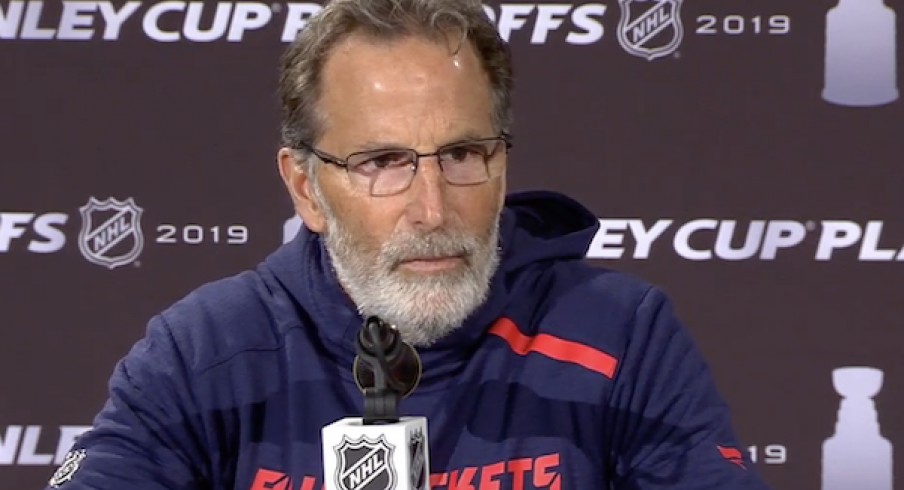If you’re a Blue Jackets fan, you probably fall somewhere on the spectrum of frustrated to outraged that John Tortorella, a finalist for this year’s Jack Adams Award given to the best coach in the NHL, didn’t win for a third time.
There are a myriad of counterpoints to what many view as a snub of the infamously fiery coach: “don’t people know about the injuries?” “didn’t people see this team fight back into playoff contention for the final three months of the season?” “He didn’t even come in second?”
“Best coach” feels like a highly subjective evaluation, so the question becomes: is there a data-driven method we can use to attempt to qualify the impact a bench boss has on his team?
Going into last season, I used Micah Blake-McCurdy’s “coaching impact” metric to evaluate the head coaching performances from the 2018-19 season. At that time, Tortorella ranked seventh in terms of offensive impact on his team, and 24th in terms of defensive impact, with a cumulative impact rating of 11th overall (summing offensive and defensive impact).

*indicates head coach did not lead the same team for 2019-20 season.
So how did Tortorella rank this season? Using McCurdy’s updated impact metric that now measures in expected goal percentage (you can read more about that here), here is how this season’s NHL coaches ranked out.
In the chart below, blue shows offensive impact, red shows defensive impact. If the bar extends to the right of the center “zero” line, the impact was positive, to the left indicates negative. The coaches are listed in descending order of overall summed impact.

*indicates coach did not lead team for the entirety of the 19-20 season.
Right off the bat, you might notice some anomalies like Buffalo’s Ralph Krueger leading the way. As McCurdy notes, “the team all-up was average xG rate for shots allowed the last year without him and minus-4% with him this season.” So the defense did improve, and that is the biggest point of impact for Krueger. But the team was overall doomed by weak special teams play – something that McCurdy’s model doesn’t consider.
McCurdy also suggests caution when evaluating coaches who did not lead their team a whole season – like Nasreddine in New Jersey. Such a small sample size means his impact may level out over time.
But, as it all stands, Tortorella ranked out 11th offensively, 20th defensively, and 14th overall in total impact. So that’s a slight drop offensively and a slight improvement defensively which keep him in the exact same spot in the rankings as last year.
That feels right – especially given the changes in the team’s structure and systems, and it’s worth noting that Tortorella finished higher than the other two Jack Adams’ finalists offensively: Boston’s Bruce Cassidy (32nd) and Philadelphia’s Alain Vigneault (29th), while all three were clustered right together defensively (Cassidy: 21st; Vigneault: 19th).
So we seem to know where Tortorella falls among his peers, but many (including myself) suggested this season may have been Tortorella’s best coaching job ever. Is that possible?
Here’s a look at Tortorella’s career in its entirety as far as offensive and defensive impact. We’ve highlighted his years in Columbus in the red box.

While Tortorella’s offensive impact has lessened over time, and this year wasn’t the most significant of his five years in Columbus, he managed to maintain his offensive impact even with the oft-mentioned free agent departures, and he was able to improve the defense – something that we know was the intent going into the season. It wasn’t his best defensive impact ever, but the most significant of the past four years.
So, was Tortorella’s change in impact enough to warrant him the Jack Adams?
To help answer that question, we looked at every coach who led the same team for all or part of the last two seasons to see who had the largest year over year improvement.

Tortorella isn’t the most improved, but he is seventh overall, and among coaches who led the same team through the entirety of the 2018-19 and 2019-20 seasons, he comes in fifth overall in year-over-year improvement. (Vigneault was in his first year with Philadelphia while Cassidy ranked 18th).
This certainly doesn’t resolve the argument of if Tortorella was the best coach in the league this season, but it does demonstrate that he remains in the top third of the league overall and this year, in the face of lost talent due to free agency and injury, managed to produce an improvement in his impact that was arguably one of the best this season.
Visuals via Shayna Goldman; all data via HockeyViz.com and represents five-on-five play.
